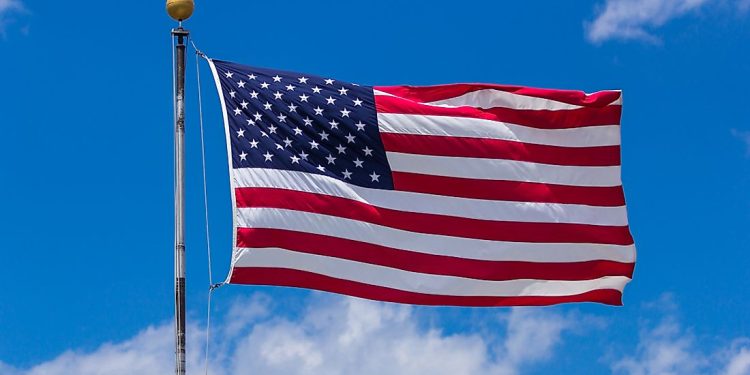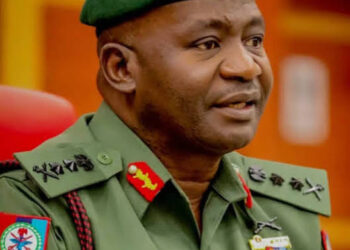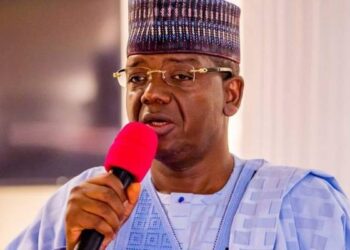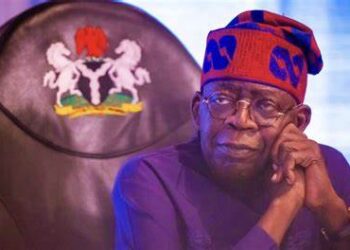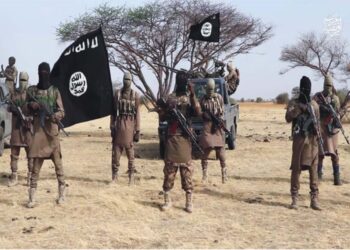The United States has escalated its confrontation with Nigeria, with the Secretary of War Pete Hegseth announcing that his department is making preparations for potential military intervention if Nigeria government fails to halt what Washington describes as attacks on Christians in the West African nation.
Hegseth’s statement on Saturday reinforced earlier warnings from President Donald Trump, who had accused the Nigerian government of tolerating violence against Christian communities and threatened direct American military involvement.
Writing on social media platform X, Hegseth delivered a stark ultimatum to Nigerian authorities. “Yes sir. The killing of innocent Christians in Nigeria and anywhere must end immediately. The Department of War is preparing for action. Either the Nigerian government protects Christians, or we will kill the Islamic terrorists who are committing these horrible atrocities,” the US Secretary of War declared.
His comments came shortly after President Trump issued an even more forceful warning, threatening to cut off all American aid and assistance to Nigeria while suggesting the possibility of armed intervention.
“If the Nigerian Government continues to allow the killing of Christians, the U.S.A. will immediately stop all aid and assistance to Nigeria, and may very well go into that now disgraced country, ‘guns-a-blazing’, to completely wipe out the Islamic terrorists who are committing these horrible atrocities,” Trump wrote in his post.
The American President went further, instructing the Department of War to begin preparations for possible military action against targets in Nigeria. “If we attack, it will be fast, vicious, and sweet, just like the terrorist thugs attack our CHERISHED Christians. Warning: the Nigerian Government better move fast!” Trump added, setting an ominous tone for bilateral relations between the two countries.
The unprecedented threats from Washington represent a dramatic deterioration in diplomatic relations between the United States and Nigeria, one of Africa’s largest economies and most populous nations. The possibility of American military operations on Nigerian soil without invitation would constitute a violation of international law and Nigerian sovereignty.
However, the Nigerian government has firmly rejected the American characterization of the security situation, with President Bola Tinubu’s administration insisting that there is no systematic targeting of Christians in the country.
The Ministry of Foreign Affairs responded to the escalating American rhetoric by stating that the allegations do not accurately reflect conditions on the ground in Nigeria. Officials emphasized that violence in various parts of the country affects citizens of all religious backgrounds, not just Christians.
The government maintains that Nigeria’s constitutional framework guarantees religious freedom for all citizens and that the administration has been actively engaging with leaders from both Christian and Muslim communities to address security challenges affecting people across different faiths and regions.
The brewing crisis raises serious questions about American foreign policy toward Africa and the potential for unilateral military intervention. If the United States were to follow through on Trump’s threats, it would mark an extraordinary breach of diplomatic norms and could set a dangerous precedent for relations between Western powers and African nations.
Nigeria has been grappling with multiple security challenges, including Boko Haram insurgency in the northeast, banditry in the northwest, farmer-herder conflicts in the Middle Belt, and separatist agitations in the southeast. While some of these conflicts have religious dimensions, Nigerian authorities insist they are primarily driven by economic factors, competition over resources, and criminal opportunism rather than religious persecution.
The threat of American military intervention has yet to draw official responses from other international actors, though such action without United Nations authorization or Nigerian consent would likely provoke widespread condemnation from the African Union and other regional bodies.
As tensions mount, the coming days will test whether diplomatic channels can de-escalate the situation or whether the unprecedented American threats signal a fundamental shift in how Washington intends to engage with Nigeria and potentially other African nations on security matters.

